|
An F-4 Phantom which has two-seats, twin-engine,
all-weather, long-range supersonic jet fighter/fighter-bomber. This
aircraft was also used by the NAVY Blue Angels and USAF Thunderbirds.
|
|
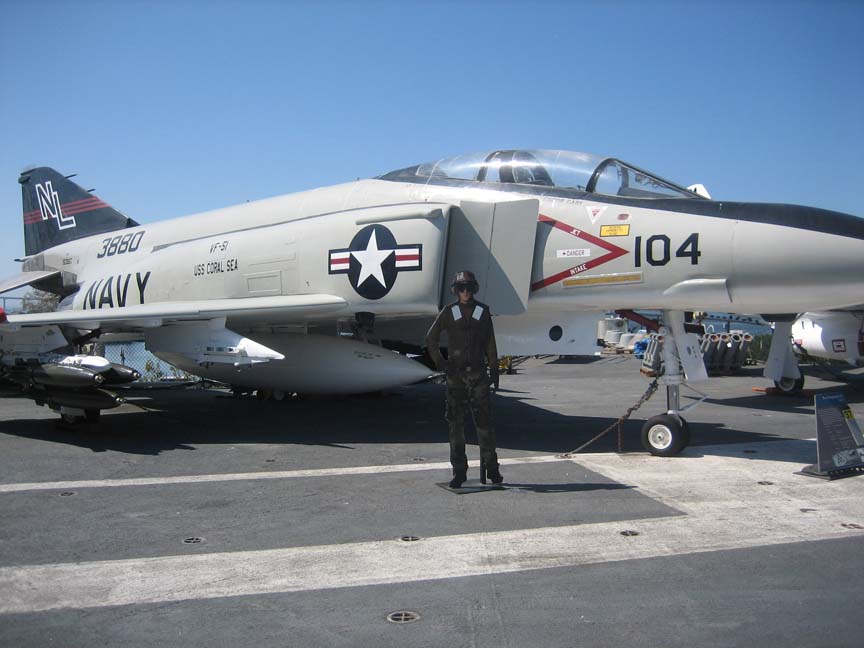
|
|
The F-4 was designed without an internal cannon. Later
models incorporated a M61 Vulcan rotary cannon.
|
|
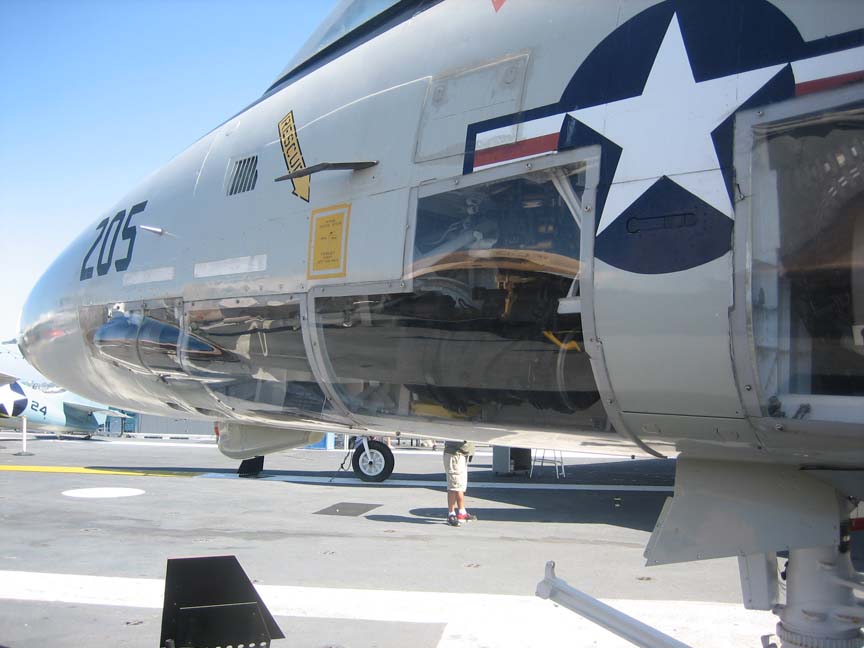
|
The gun is a hydraulically or pneumatically operated, six-barrel,
air-cooled, electrically fired Gatling-style rotary cannon which fires
20 mm rounds at 6,000 rounds per minute.
|
|
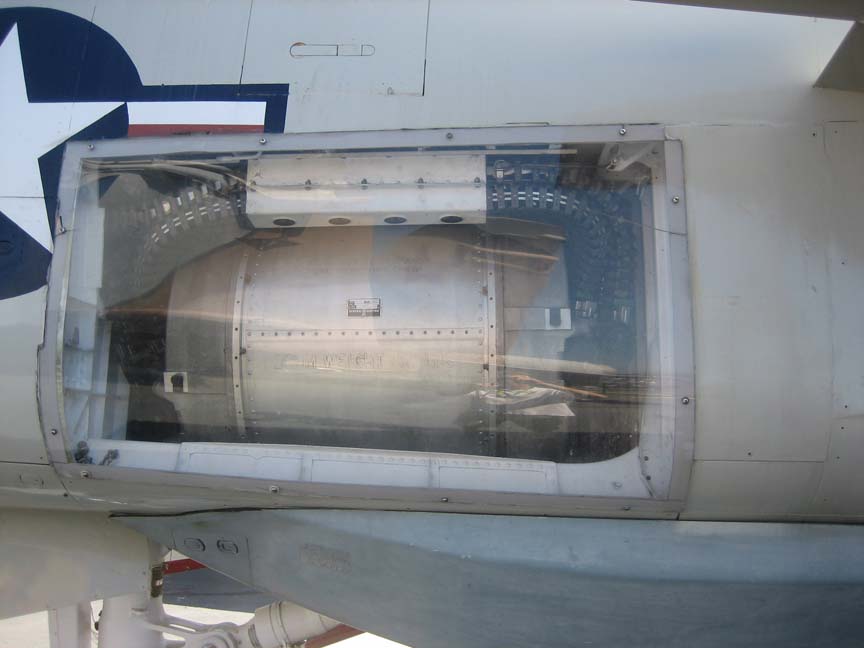
|
|
The 20mm canon weights 265 pounds and holds 676 rounds
of ammunition.
|
|
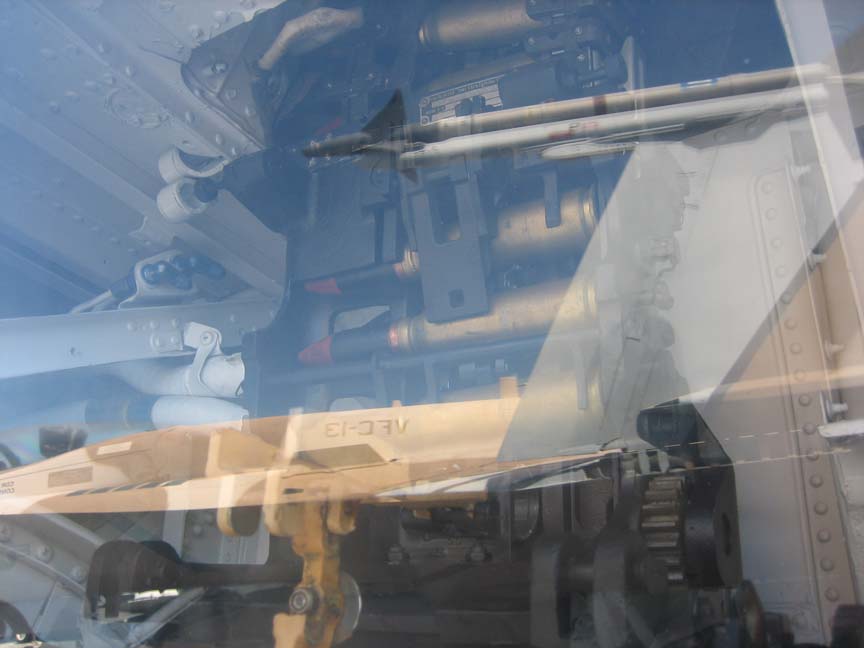 |
|
|
|
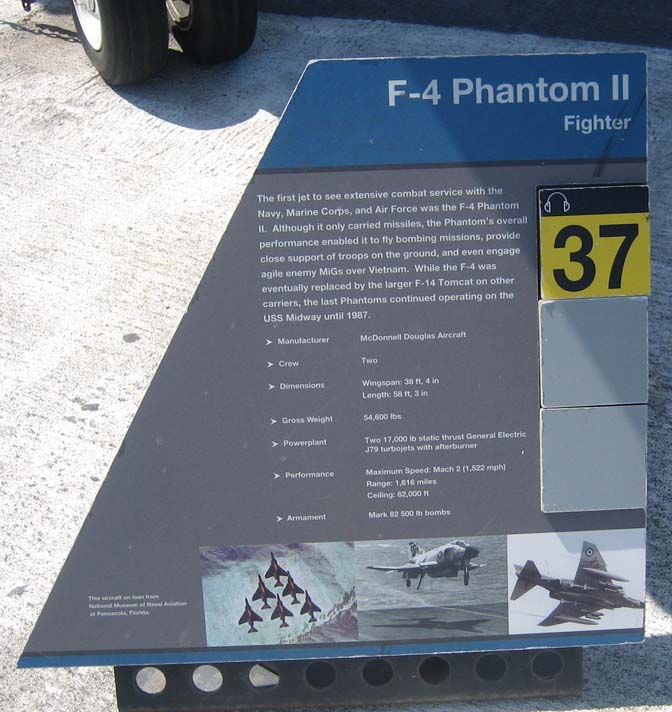 |
With a top speed of over Mach 2.2 it can carry more than 18,000 pounds
of weapons, including air-to-air missiles, air-to-ground missiles, and
various bombs.
|
|
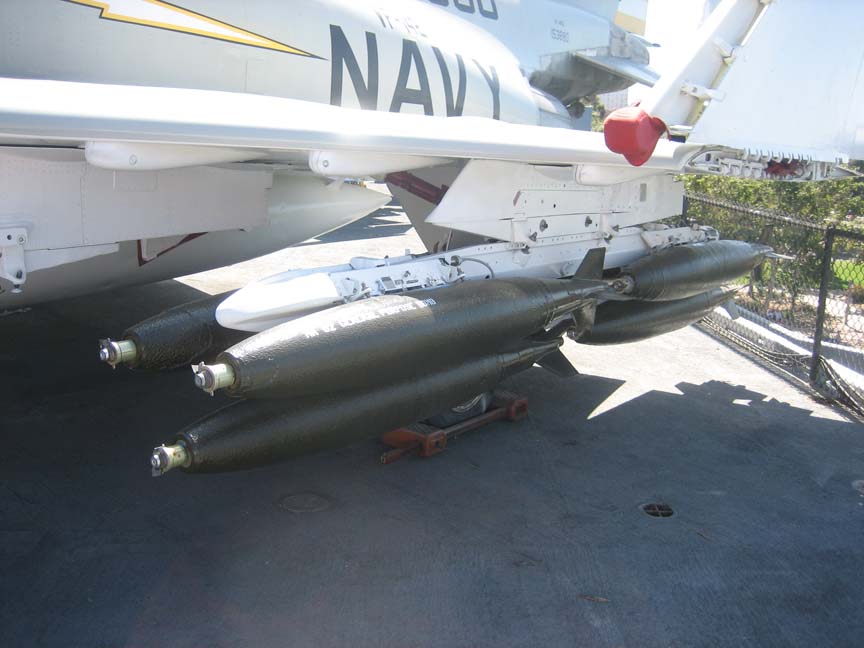 |
|
View inside the landing gear bay area.
|
|
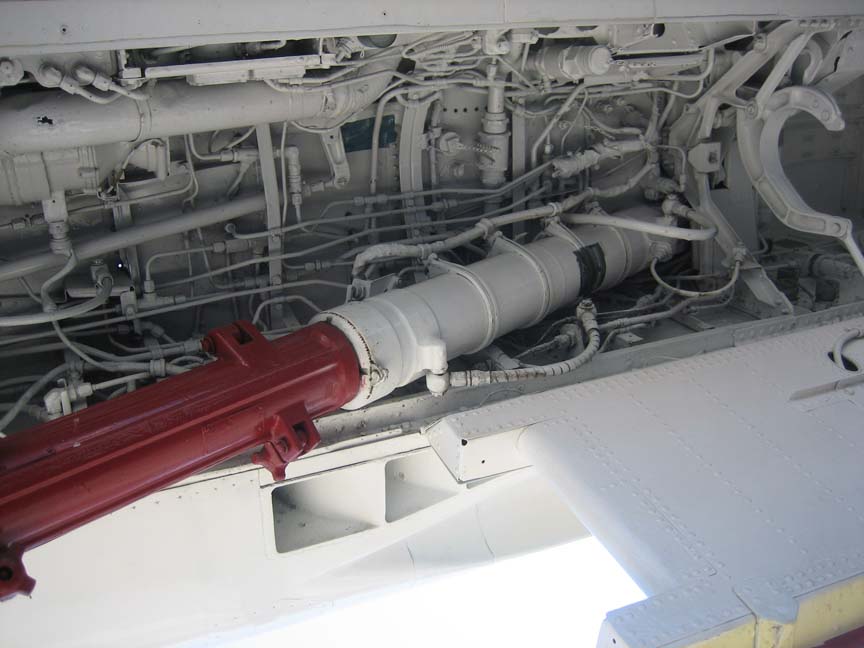 |
|
Landing gear on all carrier based aircraft need to be
big and strong allowing for unscheduled hard landings. Note my hand for
reference.
|
|
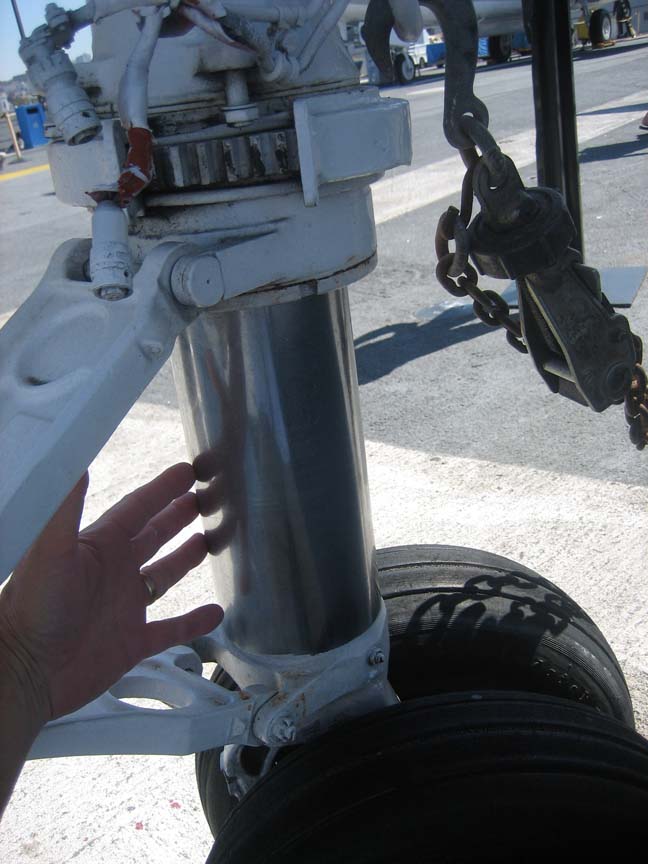 |
A Landing Signal Officer (LSO) is a Naval Aviator specially trained to
help with the "safe recovery" aboard aircraft carriers. Originally LSOs
were responsible for bringing aircraft aboard the ship using hand
signals. Since the introduction of optical landing systems in the 1950s,
LSOs assist pilots by giving information with radio handsets.
|
|
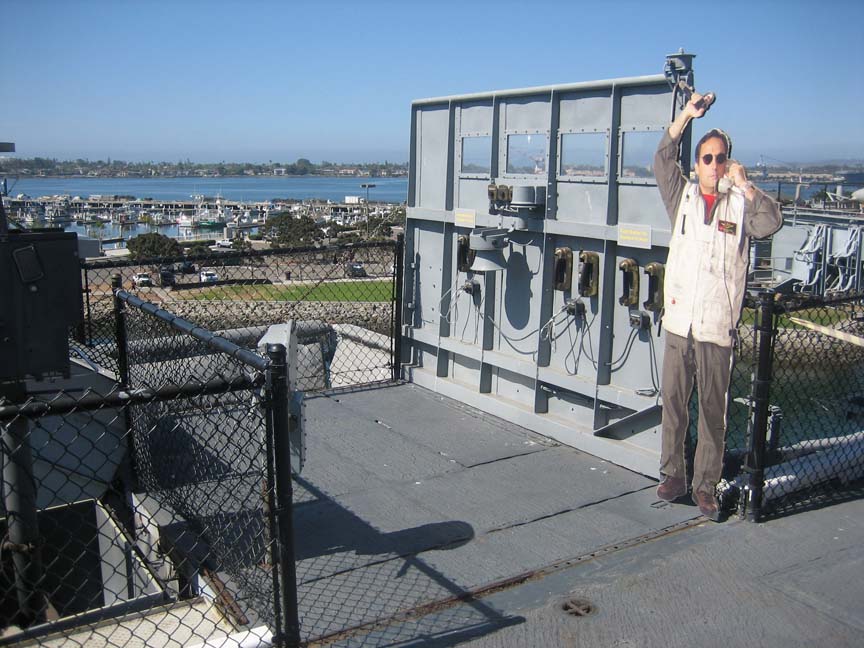 |
|
The LSO platform is outfitted with communications
gear, deck status and ship indications.
|
|
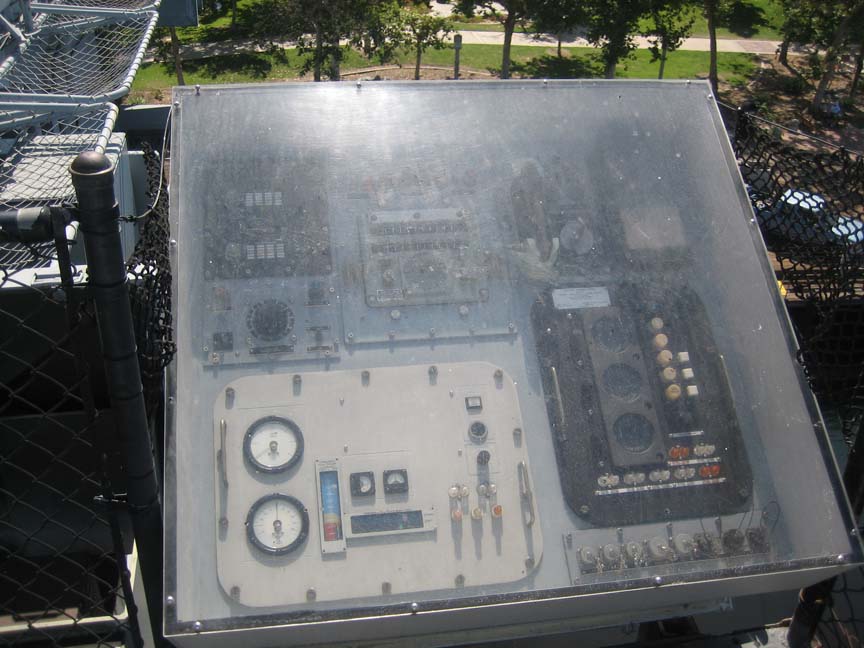 |
|
It's protected by a wind deflector and has an
escape area that deck personnel can jump into in an emergency.
|
|
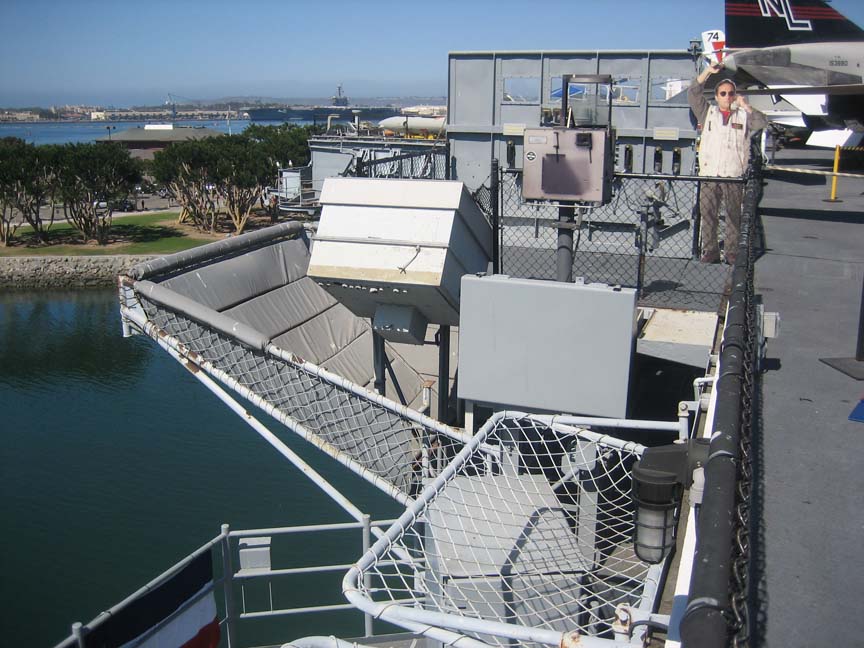
|
|
Close-up of escape area.
|
|
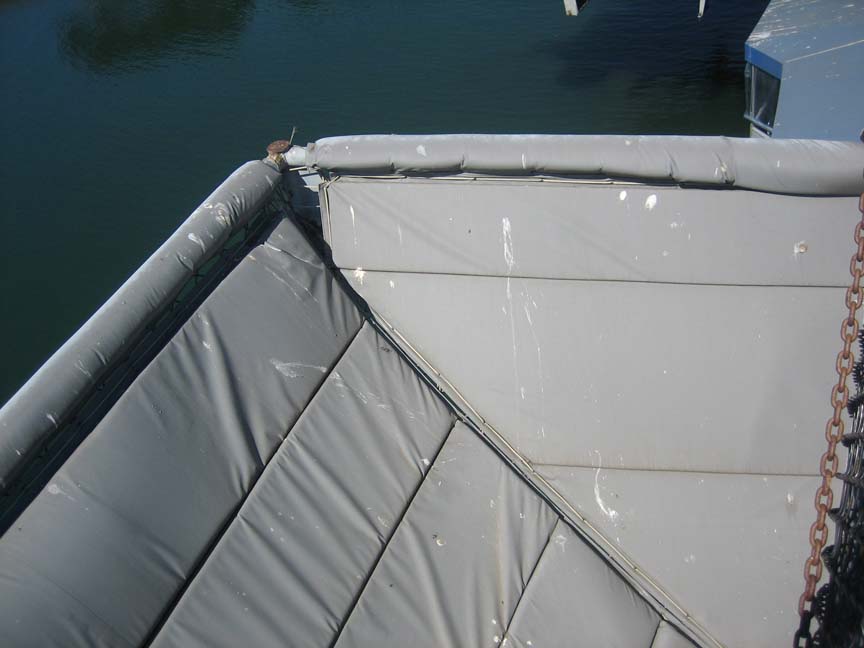
|
|
1
2
3
4
5
6
7
8
9
10
11
12
13
14 |